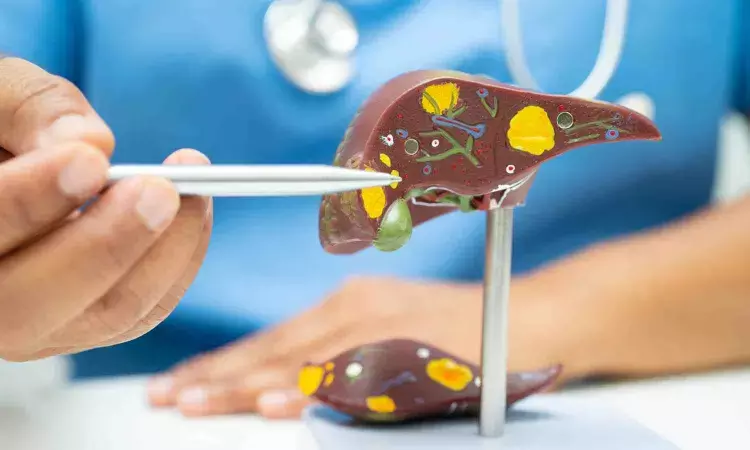- Home
- Medical news & Guidelines
- Anesthesiology
- Cardiology and CTVS
- Critical Care
- Dentistry
- Dermatology
- Diabetes and Endocrinology
- ENT
- Gastroenterology
- Medicine
- Nephrology
- Neurology
- Obstretics-Gynaecology
- Oncology
- Ophthalmology
- Orthopaedics
- Pediatrics-Neonatology
- Psychiatry
- Pulmonology
- Radiology
- Surgery
- Urology
- Laboratory Medicine
- Diet
- Nursing
- Paramedical
- Physiotherapy
- Health news
- Fact Check
- Bone Health Fact Check
- Brain Health Fact Check
- Cancer Related Fact Check
- Child Care Fact Check
- Dental and oral health fact check
- Diabetes and metabolic health fact check
- Diet and Nutrition Fact Check
- Eye and ENT Care Fact Check
- Fitness fact check
- Gut health fact check
- Heart health fact check
- Kidney health fact check
- Medical education fact check
- Men's health fact check
- Respiratory fact check
- Skin and hair care fact check
- Vaccine and Immunization fact check
- Women's health fact check
- AYUSH
- State News
- Andaman and Nicobar Islands
- Andhra Pradesh
- Arunachal Pradesh
- Assam
- Bihar
- Chandigarh
- Chattisgarh
- Dadra and Nagar Haveli
- Daman and Diu
- Delhi
- Goa
- Gujarat
- Haryana
- Himachal Pradesh
- Jammu & Kashmir
- Jharkhand
- Karnataka
- Kerala
- Ladakh
- Lakshadweep
- Madhya Pradesh
- Maharashtra
- Manipur
- Meghalaya
- Mizoram
- Nagaland
- Odisha
- Puducherry
- Punjab
- Rajasthan
- Sikkim
- Tamil Nadu
- Telangana
- Tripura
- Uttar Pradesh
- Uttrakhand
- West Bengal
- Medical Education
- Industry
Liver Fibrosis Scores closely Linked to Elevated Heart Failure Risk: Study

Recent research has established that the scores for noninvasive liver fibrosis such as the Fibrosis-4 (FIB-4) score, the nonalcoholic fatty liver disease (NAFLD) fibrosis score (NFS), and the aspartate aminotransferase to platelet ratio index (APRI), all showed significant association with the greater prevalence of heart failure. The study was conducted by Xiao L. and colleagues which was published in the Journal of The American Heart Association.
While the association between nonalcoholic fatty liver disease and cardiovascular disease has been well described, the relationship between the fibrosis score and the risk of cardiovascular events remains unclear. The goal of this study was to evaluate the association between the scoring systems of the level of liver fibrosis and heart failure using non-invasive approaches.
This cross-sectional investigation analyzed data from the NHANES, from 2011 through 2018. The three modalities of noninvasive scoring that were used to assess the risk for liver fibrosis were administered on the 19,695 participants; these included the following:
• FIB-4 score
• NAFLD fibrosis score (NFS)
• Aspartate aminotransferase to platelet ratio index (APRI)
Key findings of the study were as follows:
• Advanced Liver Fibrosis Risk Prevalence
• FIB-4 score:4.20%
• NFS score:8.06%
• APRI score:0.35%
Significant association with heart failure
• FIB-4 (continuous variable):OR 1.15 [95% CI,1.07–1.23]
• NFS:OR 1.42 [95% CI,1.23–1.64]
• APRI: OR 1.44 [95% CI, 1.15-1.81]
Results of categorical analysis:
• FIB-4 ≥2.67 vs FIB-4 <1.3: OR 2.18 [95% CI, 1.47-3.24]
• NFS ≥0.675 vs NFS <−1.455: OR 2.53 [95% CI, 1.37-4.68]
This study concludes that advanced liver fibrosis risk, as indicated by FIB-4, NFS, and APRI scores, poses a highly significant correlation with an elevated prevalence of heart failure. Such findings emphasize an integrated approach to diagnosis relating to both the hepatic and cardiovascular systems, mainly in at-risk groups.
Reference:
Liu, X., Zhang, H.-J., Fang, C.-C., Li, L., Lai, Z.-Q., Liang, N.-P., Zhang, X.-T., Wu, M.-B., Yin, X., Zhang, H., & Dong, Y.-F. (2024). Association between noninvasive liver fibrosis scores and heart failure in a general population. Journal of the American Heart Association. https://doi.org/10.1161/jaha.123.035371
Dr Riya Dave has completed dentistry from Gujarat University in 2022. She is a dentist and accomplished medical and scientific writer known for her commitment to bridging the gap between clinical expertise and accessible healthcare information. She has been actively involved in writing blogs related to health and wellness.
Dr Kamal Kant Kohli-MBBS, DTCD- a chest specialist with more than 30 years of practice and a flair for writing clinical articles, Dr Kamal Kant Kohli joined Medical Dialogues as a Chief Editor of Medical News. Besides writing articles, as an editor, he proofreads and verifies all the medical content published on Medical Dialogues including those coming from journals, studies,medical conferences,guidelines etc. Email: drkohli@medicaldialogues.in. Contact no. 011-43720751


